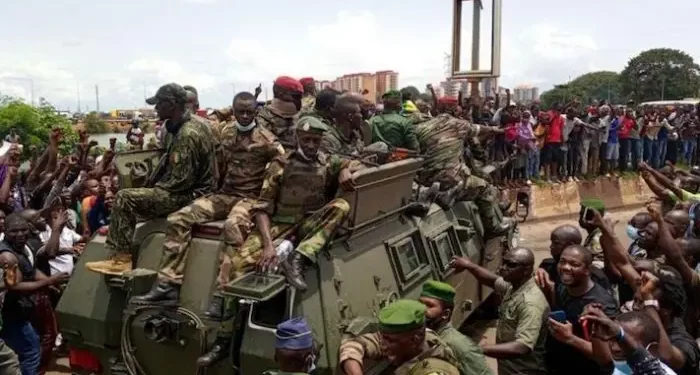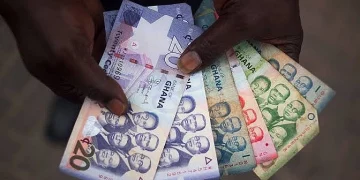Multipolar world — BRICS vs G7 — spurring return of coups in Africa?
A series of violent change of governments in recent times in French-speaking West and Central Africa by military men is raising the spectre of a return to the hoary days of dystopia and tyranny rampant in the continent between the 1960s and the end of the Cold War.
The Cold War represented a global system of bipolarity in which the United States and the Soviet Union competed intensely for global domination. Relations between the Soviet Union and the US were driven by a complex interplay of ideological, political, and economic factors, which led to shifts between cautious cooperation and often bitter superpower rivalry over the years.
The interventions and alliances birthed in Africa between the 1960s and 1980s helped to shape the realities of the bipolar world system.
During the Cold War, west, central, eastern and southern Africa proved to be fertile grounds for proxy war as the US and the Soviet Union found it critical to expand their spheres of influence, largely by promoting leadership in the ‘Third World’ that would be sympathetic to their causes.
Out of the 486 attempted or successful military coups carried out globally since 1950, Africa accounts for the largest number with 214, of which at least 106 have been successful.
Data compiled by American researchers Jonathan M. Powell and Clayton L. Thyne show that at least 45 of the 54 nations across the African continent have experienced at least a single coup attempt since 1950.
Between 1958 and 2008, most coups in Africa occurred in former French colonies, as did six of the seven since 2019. Similarly, 12 of the 20 coups in the sub-region since 2010 happened there. The latest successful putsch in Burkina Faso came on the heels of two attempted ones, in 2015 and 2016.
The end of the Cold War also saw the end of the bipolar world system.
After the Cold War, a neoliberal democratic programme was inaugurated in Africa. It promised to free the continent from authoritarianism and military seizures of power, in favour of political pluralism and the rule of law. Thus, many decades later, coups were supposed to be rare, if not a thing of the past, and dictatorships were supposed to be on the decline.
In February, 1989, Francis Fukuyama gave a talk on international relations at the University of Chicago. With the Cold War coming to an end, he foresaw a spread of liberal democracies throughout the world.
On the contrary, Samuel Huntington presented his self-fulfilling prophecy, namely the “clash of civilisations”, where he argued that international politics would now be centred by the interplay of West and non-Western civilisations and thus lead to conflict.
Ultimately, it was some 30 years of peace and quiet in Africa until recent times.
The soldiers are coming back. From Burkina Faso to Mali, Niger, Guinea, Chad, Sudan and now Gabon, mainly western-trained army officers are seizing back the reins of power from politicians.
Researchers Hakeem Onapajo and Muhammad Dan Suleiman assert that “the quest for strategic influence and advantage by foreign powers in Africa has involved them in coups in the continent”. “They tolerate local politics and authoritarianism as long as their strategic advantage is served,” they said.
With more of the region’s elected governments at risk of violent overthrow, French President Emmanuel Macron has warned that “all the presidents across the region are more or less aware of the fate that awaits them” unless democracy is restored.
“I think coups in Africa are a contagion now,” Feyi Fawehinmi, an author and researcher, said.
For Cheta Nwanze, a partner at the Lagos-based consultancy SBM Intelligence, the rising spate of coups “is part of a trend that is largely sweeping across Francophone Africa (for now) as French-supported autocrats pretending to be democrats slowly lose their grip on power”.
“There’s a risk it would jump to Anglophone Africa, as there’s also dissatisfaction with the economic outcomes of 30 years of civilian rule in those countries, but the risk is mostly in French Africa. Cameroon and Togo are likely next,” he added.
The widening ‘coup belt’ across the Sahel, West Africa and Central Africa demonstrates a repudiation of US and western influence and pressure.
Years of unipolar power dominance and influence by the US and its western allies in the continent through aid, loans, sanctions and threats of sanctions has left many Africans unimpressed.
The continent has made little economic progress during this period.
Onapajo and Suleiman said: “Governance deficits, non-fulfilment of the entitlements of citizenship, frustrated masses (most of whom are young) and growing insecurity are chief among the inward-looking causes. International factors, including external influence, are among the outward-looking.”
These immediate factors, according to them, “exist in a broader context that allows immediate causes to persist long enough to spark coups. Unimpressive democratic conditions in countries, and the consistency of foreign influence in African countries, make it unsurprising that there have been recent attempted and successful military takeovers of government”.
While the US’ Africa policy promises economic partnerships in areas that speak to both African economic priorities and US strengths, for many in the continent, the west is more interested in the political and economic mileage it can get from Africa.
Russia and China, meanwhile, are capitalising on that attitude, spreading anti-Western propaganda throughout the region and challenging western hegemony in the continent.
The rise of the BRICS group of nations and its recent expansion poses a counterweight to the G7 western powers. Originally, the countries came together as a grouping in the late 2000s to coalesce around issues of finance, development and trade. However, the bloc has now grown to symbolise one side of the ledger in a world of bitter strategic rivalry and growing multipolarity.
“Great attention to the BRICS around the world has helped China and Russia’s rhetorical campaign to pin ‘the West’ against ‘the rest’,” Andrew Cheatham, senior advisor, Global Policy at the United States Institute for Peace, said.
Kamissa Camara, Mali’s former minister of foreign affairs, believes that Russia’s role in these coups and western charges of toxic influence by Moscow in the continent is always overstated.
Camara said: “These Russian flags that you see right after a coup has taken place have been planted there. I have absolutely no doubt about that.
“I do not believe that Russia is an important player in this region. I believe that there is definitely a Russian propaganda at play. But culturally and even looking at these youth in West Africa, they speak French, most of them. They study in French, and they either want to immigrate to France or the United States. I do not see any of them queuing in front of the Russian embassy.”
But focusing on foreign influences ignores each country’s internal politics and security, as well as the effects they have on each other.
On a cursory look, Deji Olutoye, a lawyer, said: “The Ali Bongo overthrow plays into the succession of coups that we have seen in the last couple of years across Africa. However, Gabon is not an Islamist-ridden Sahelian country. It may even appear to play into the so-called “messy middle” thesis of the Economist magazine — the idea that Africa’s key dysfunctional places stretch from the Sahel in West Africa through Sudan to Central Africa. However, it signals something different. Gabon, though resource-rich like DRC, has managed a facade of stability in the last few decades.
“I think the clearest signal is that there is a notice now being served on democracies that have failed to properly launch across the continent. We expect incipient democracies to totter at first, but then to mature as time goes on. What we have seen in the last decade is that the wave of democratisation that swept through Africa from the early 90s have largely produced regimes that did not go beyond the box-ticking of election cycles.
“There is a crying legitimacy gap, not just in the quality of elections, but in the outcome – the so-called democracy dividends – for the populace. This has manifested in diverse ways across the continent. In places like Gabon, Togo, Cameroon and Equatorial Guinea, it has manifested in effete sight-tight regimes and dynasties. The clearest signal from Gabon is to these other sight-tight regimes, including in neighbouring Cameroon where President Biya’s regime is deepening separatist disaffection. For other parts of the continent where election cycles are deteriorating, no matter how we choose to see or not see what has happened in Gabon, Ali Bongo’s overthrow is also a notice.”
The challenge to majority rule in Africa, Camara concurs is that “democracy as we understand it in the west has not been that successful in some African countries, including the ones that have recently experienced the coup”.
“And so, first of all, what I’m hoping is that the youth in these countries define their own path and design the institutions that they want to see,” she said.
“And my second hope is that we, as international partners, put our emphasis on the private sector, which will be able to create the jobs that will be needed in the next few years when these millions of youth will come onto the drug market seeking a better future.”








